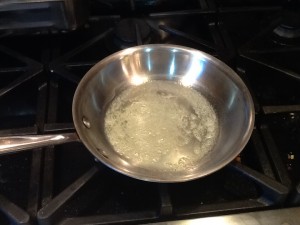
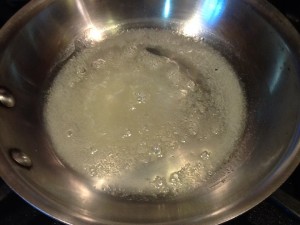
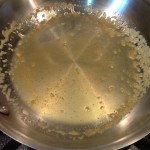
When you’re cooking one of the things you should be paying attention to, but may not be, are the bubbles. When I learned to make scrambled eggs, and I mean as a kid, not when I was in culinary school, where making scrambled eggs is a whole other thing, but when my dad was showing me how to make my own breakfast, as we watched the butter melt in the pan he advised me “Wait until the bubbles are gone before you add the eggs to the pan”. For years I followed that advice, unthinkingly, just because that’s the way my dad showed me.
I heard a funny store on Lynne Rosetto Kasper’s NPR show The Splendid Table about a family recipe for a Sunday ham, passed down through three generations, and which started with directions to use a specific pan. Three generations all used that pan, passing it around and sharing it, to properly make the recipe. Finally one day one of the young cousins asked the old matriarch of the family why they only used that pan, it turns out that at the time the the ham was first made, that was the only pan large enough for the ham.
If you come from a family where there was cooking done—and most of us do, there are directions we just accept without question. Waiting for the bubbles to subside is just one of mine. Some of them like the pan for the ham, have nothing to do with the outcome of the dish, but some, like paying attention to the bubbles are sound advice. Those bubbles in the butter are water boiling, and evaporating, which is good, when the bubbles are gone, so is the water, and the fat can get hotter, and cook those eggs. This is another way to be mindful about cooking, to do something for a reason, beyond that’s how we’ve always done it.
Last weekend I heard Sunny Anderson from Food Network say that when seasoning a schnitzlel to pan fry she uses garlic powder rather than fresh garlic because the fresh would burn. I have onion and garlic powder, and use them from time to time, but never really thought about why or when to use powder over fresh. If you are making the same recipe again and again, and keep running into a particular problem with it, it’s time to deconstruct it. Do you know at what stage the problem is happening? Is it a flavor or texture issue? It may be that the recipe isn’t written well, and you need to do some research. Find a few more recipes for the same dish, and do some comparisons. You may need to make a simple change such as from fresh to powdered garlic, or slow down your cooking time by lowering the heat. Just because it’s written down, in a cookbook, or online source doesn’t mean it’s a good recipe.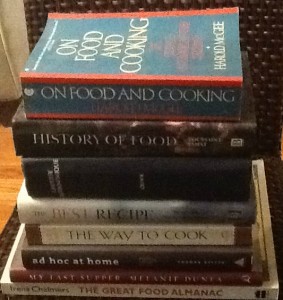
Part of developing skill and technique as a good cook is paying attention to what’s taking place in front of you. Knowing that you shouldn’t flip a pancake until the bubbles in the batter have popped, and the edges are starting to brown, then only flipping one time, is something I learned from making a lot of bad, undercooked pancakes. If you’re going to make changes to a recipe, my advice is to change only one key step or ingredient, at a time. Just like any science experiment (and cooking is that) if you create too many variables you don’t end up with useful data. As one of my college roommates wisely said to me, if you’re going to invest the time to make something isn’t is worth taking the extra few minutes to pay attention and do it right?
Those bubbles tell you what’s happening in your pots and pans. If you’re making pasta, or blanching vegetables you definitely want to see that water bubbling furiously, that tells you it’s as hot as it can be. When you’re making soups and stews you want a simmer, to slowly evaporate that water, and reach the right balance—you don’t want to lose all the water, or you’ll end up with an overly salty product. When you boil meats like corned beef, or even hot dogs, using rapidly boiling water will cause the proteins to tighten up and toughen the meat, they too need to simmer, not for flavor, but for texture. Cooking isn’t the time to hurry. If you’re in a hurry, or late, make something that doesn’t need time and attention, rather than ruining good ingredients by mistreating them.
Lots of things are happening to your food when you cook, and you can control a lot of it. If you’re distracted and doing too many things at once, you won’t notice those changes until it’s too late. You need to pay attention to those bubbles, in the melting butter, in the frying pan, in the soup or sauce, or even if you’re cooking hot dogs.


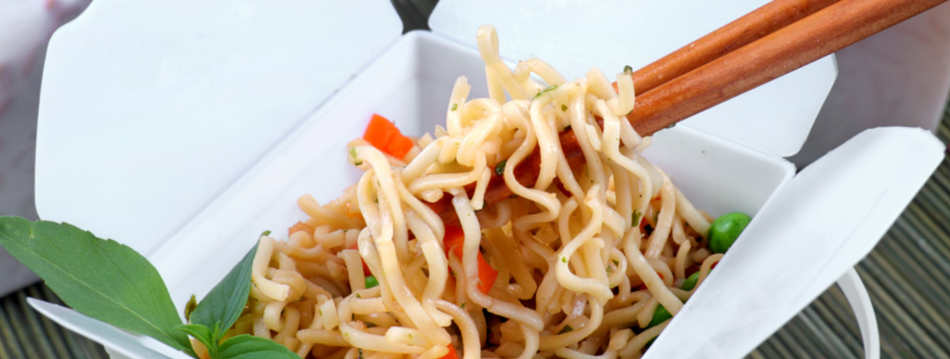


.jpg)




